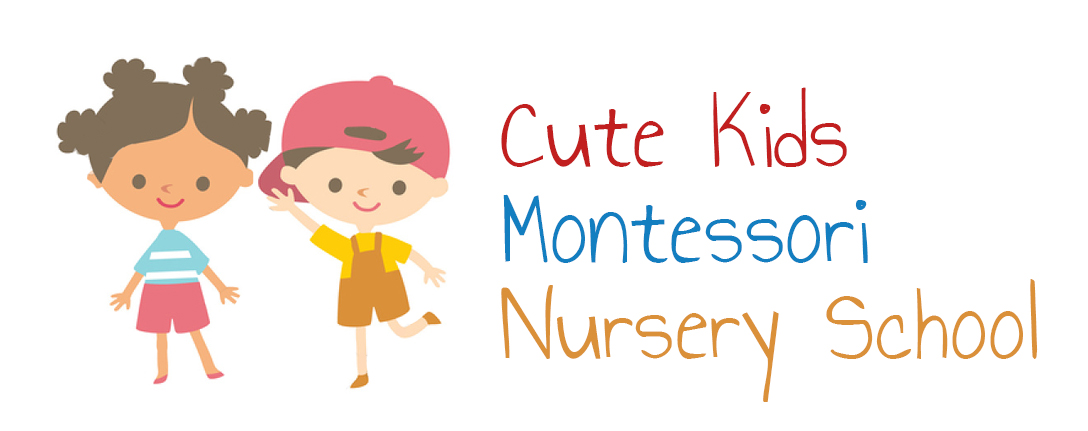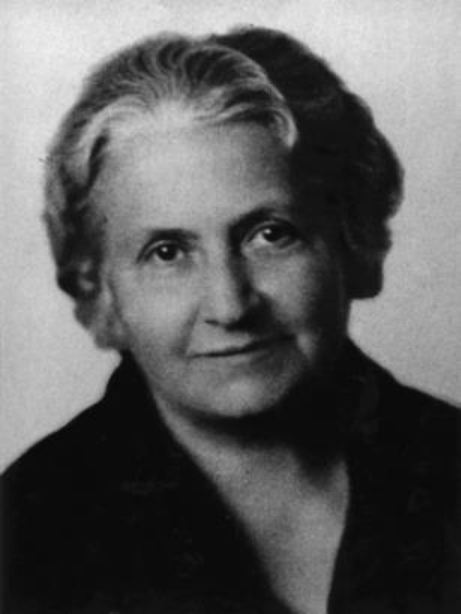
Dr Maria Montessori
The Montessori Method of education compliments the Early Years Foundation Stage Framework. It was founded by Dr. Maria Montessori, Italy’s first female physician who was interested in how children learn. Dr. Maria Montessori created intriguing materials that invite children to manipulate, explore and cultivate their individual initiative, curiosity and motivation, the key qualities of a life-long learner. Dr. Maria Montessori also understood that the classroom should be carefully arranged to provide freedom to explore and the guidance from a carefully trained teacher. Learning becomes for all children a joyful path on which they are guided by their innate curiosity and delight in discovery.
Studies have confirmed Dr. Maria Montessori’s belief that intellectual skills develop when a child’s learning process stimulates as many senses as possible. Montessori education engages children emotionally as well as physically with intriguing, hands-on materials and appropriately challenging concepts. As they grow through a Montessori education which compliment the EYFS Framework. Children develop their aesthetic, artistic sense and learn both what Dr. Maria Montessori called the Practical Life Skills of everyday living as well as the disciplines of language arts, mathematics, science, art, music, geography and history. They become confident and eager learners.
Our Observations and comprehensive learning journey records of your child
The Montessori teachers design an effective, individual learning experience for each child aged 2 ½ to 5 years. Our program is child-centered, focuses on the children and not the teacher. The teacher serves the children as “Guides.” The young child is eager to accomplish and do things for himself/herself. In a prepared environment the child will choose materials that naturally enhance inner needs for growth. The child’s developmental needs are met by the spontaneous choice of activities with the guidance of a qualified trained Montessori Directress. The Montessori teacher is a link between the child and the classroom environment. Our classrooms are specially prepared to encourage each child to actively participate in his or her own learning.

Practical life
Children learn strategies and skills they will need in the course of their future education. They develop their concentration and coordination, they fix their sense of order, and they strengthen their motor abilities and gain self-confidence. The activities of this block can be divided into four main groups – development of fine and gross motorics, self-care, care for others and refinement of politeness, kindness and good manners. A child benefits from this way of preparation by becoming more active and interested in all observed activities.
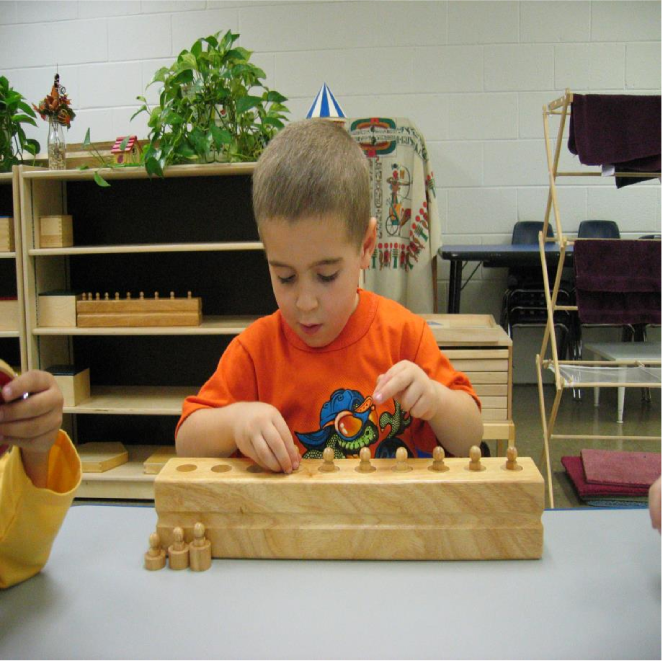
Sensory education
The aim of sensory education lies in improving and refining children’s senses. Children of this age experience the so called “sensory period” when sensory stimuli, perceptions and experience play a key role in the process of learning. Children need to see things, touch and handle materials, they need to smell and taste them. All sensory materials help improve and specify their understanding of the physical world, they are shown differences and similarities and they focus on details. Music education represents a part of the sensory education.
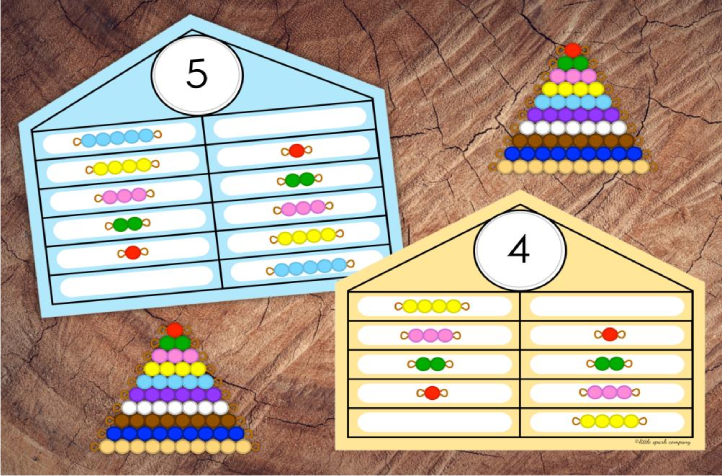
Mathematics
The Montessori material of mathematics makes children familiar with individual numbers and numeric operations in a very factual and exemplifying way and develops their understanding of mathematic progression. This material has its own method. We always proceed from concrete things to abstract ones, from the simplest to more complicated, from known things to unknown ones. Children learn to feel basic principles of the numeric world with all their senses. When counting steps while walking or arranging blue and red bars from the shortest to the longest one, they learn that maths is present everywhere around us.
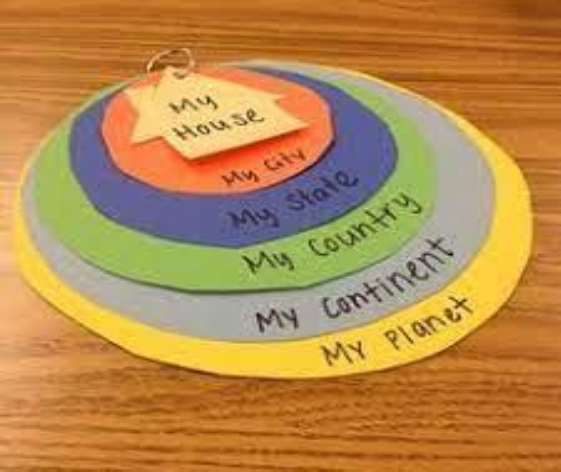
Cosmic education
Cosmic education is a study of everything which is around us. It deals with a standing of a man in the society, it outlines the history of our planet, it explores the space, life, nature and culture. Cosmic education involves also the topics of the basics of humanities and natural science, national history and geography, biology, geography, history but also of chemistry, physics and of social and cultural sciences. A teacher tries to help children to explore the world in the context. At this age it is mainly about learning through individual senses and experiences and exploring rules by means of practical activities and experiments. The topics of cosmic education contain music, arts and motor activities. While working we follow the slogan:
“Let’s give a child an image of the whole space where everything is a part of it and everything is interlinked and makes a unified whole.“
Maria Montessori
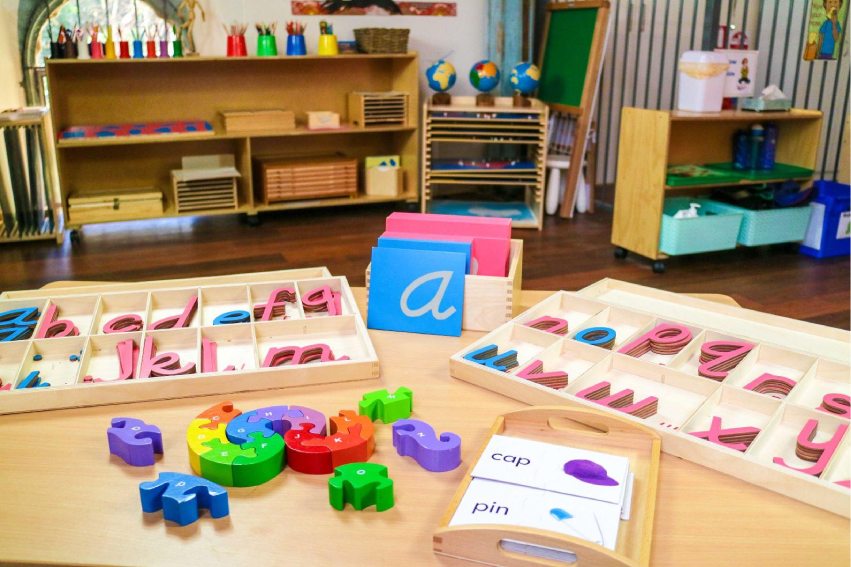
Language education
The materials for foreign language teaching are based on the specifics of the mother tongue of a child. When teaching reading we take an easy way through individual steps. Children first get acquainted with speech/sounds not only in a traditional way but also by means of other senses, for example by touch. In parallel to practising sounds, they also widen their vocabulary, they create sentences, narrate stories, make questions, etc. As soon as they know most of the sounds, they advance to the so called „moving alphabet“ they can analyze words and put them together through the choice of free letters.
Writing starts already in the block called Practical Life – children practise fine motorics, they learn to grasp various objects and in the Arts and Crafts lessons they move to grasping a pencil. We pay attention to their correct grasp. Children start by tracing lines, connecting dots; they learn to understand that letters are written on lines, etc. They practise their hands through relaxation exercises and get acquainted with the writing technique.
Benefits of Montessori Education
• Montessori children learn to think critically, work collaboratively, and act boldly—a skill set for the 21st century.
• Montessori education offers our children opportunities to develop their potential as they step out into the world as engaged, competent, responsible, and respectful citizens with an understanding and appreciation that learning is for life.
• Each child is valued as a unique individual. Montessori education recognises that children learn in different ways, and accommodates all learning styles. Children are also free to learn at their own pace, each advancing through the curriculum as he is ready, guided by the teacher and an individualized learning plan.
• Beginning at an early age, Montessori children develop order, coordination, concentration, and independence. Classroom design, materials, and daily routines support the individual’s emerging “self-regulation” (ability to educate one’s self and to think about what one is learning), children are challenged throughout the day – this may be our babies crawling to meet new friends, counting steps on their step stairs, simple phrases in different languages or becoming a doctor at role play.
• Children are part of a close, caring community. The multi-age classroom—typically spanning 2 – 3 years—re-creates a family structure. Life is all about care and respect for others. At a very early age we believe it is vital to encourage children to become part of a social group outside of the home. At Cute Kids Montessori children can make new friends with whom they can learn and share, take turns and role model to each other.
• We feel very strongly that children should respect one another and understand differences and similarities in each other. We encourage children to express their feelings positively, begin to understand the opinions of others through discussion with their peers and by the examples set by our skilled qualified staff.
• Each day at the nursery is different and children are constantly encouraged to try new things and reach their full potential beyond their comfort zone.
• Older children enjoy stature as mentors and role models; younger children feel supported and gain confidence about the challenges ahead. Teachers model respect, loving kindness, and a belief in peaceful conflict resolution.
• Montessori children enjoy freedom within limits.Working within parameters set by their teachers, children are active participants in deciding what their focus of learning will be. Montessorians understand that internal satisfaction drives the child’s curiosity and interest and results in joyous learning that is sustainable over a lifetime.
• Children are supported in becoming active seekers of knowledge.Teachers provide environments where children have the freedom and the tools to pursue answers to their own questions and interest; lots of activities to stimulate inquisitive little mind.
• Self-correction and self-assessment are an integral part of the Montessori classroom approach. As they mature, children learn to look critically at their work, and become adept at recognizing, correcting, and learning from their errors.
• Given the freedom and support to question, to probe deeply, and to make connections, Montessori children become confident, enthusiastic, self-directed learners. They are able to think critically, work collaboratively, and act boldly—a skill set for their future development and achievements.
